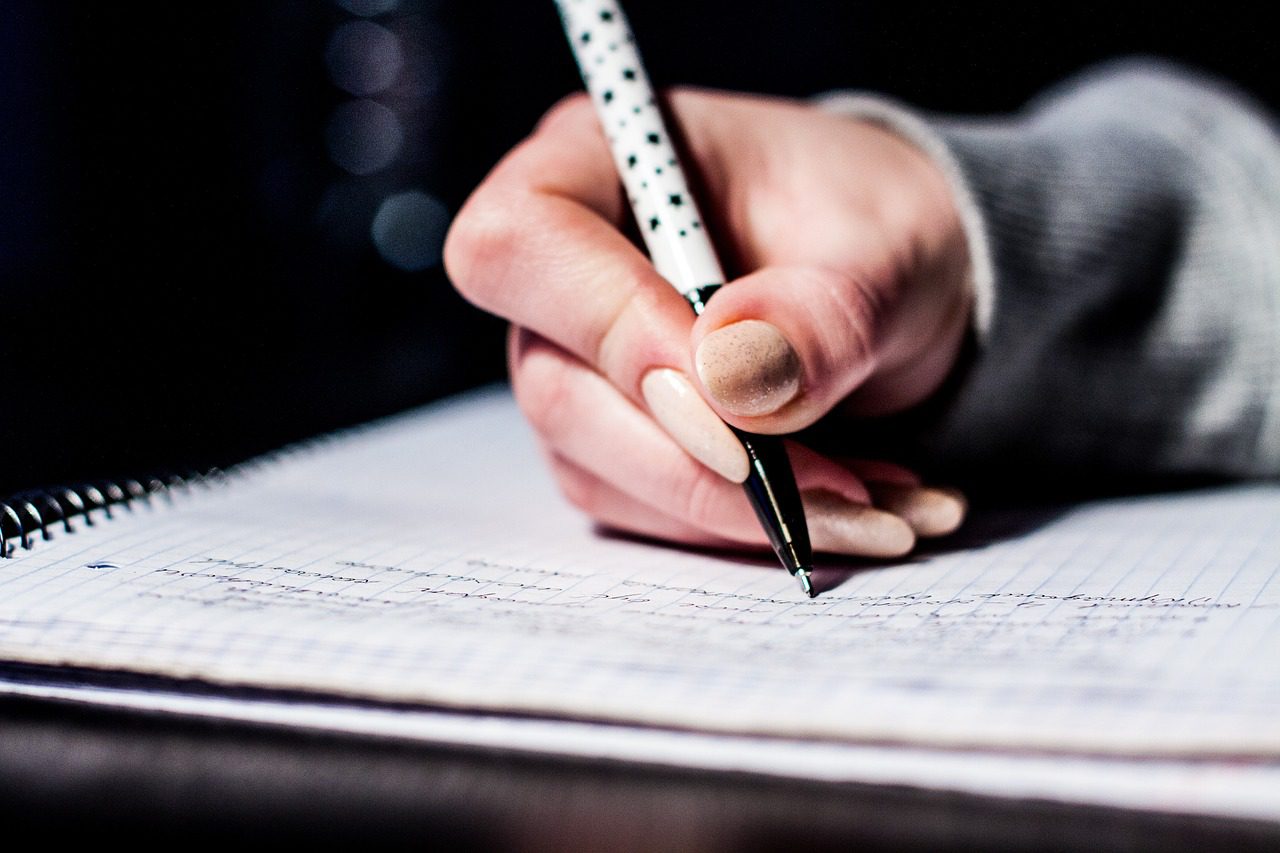
By Marcus Goh and Adrian Kuek
At secondary level, students are no longer forced to answer just one question. They’re given a variety of different questions that they can choose that span multiple text types and topics. It’s more difficult to stay on topic for secondary English compositions since different questions have different requirements.
However, there are still some universal tips that will help make sure that the students don’t write out of point. Some of them may need a little bit more practice than others to execute, but they’ll definitely pay off in an examination setting.

1. Identify the composition type
Before writing, ask the student to identify the type of composition he or she is writing. Is it a personal recount or expository composition? Different types of compositions have different requirements and expectations, and staying on topic also means writing what is expected according to the text type.
Some O-Level composition questions may no longer be as straightforward, requiring students to use a mix of personal recount and expository writing styles to answer the question. In this case, it’s even more important that they identify what composition type by the question, since strictly adhering to just one type will show the examiner that the student has not understood the question properly (and they will be penalised accordingly).
2. Highlight keywords
Teachers often nag at students to circle, underline, or highlight keywords, but there’s a very good reason for it. When facing exam stress, students are less likely to read or re-read questions thoroughly. Thus, highlighted keywords provide a quick visual reference for the student to remember what the composition is supposed to be about.
The act of highlighting keywords also reinforces the topic in the student’s mind, minimising the chances of going off topic.

3. Include the keywords in the introduction and conclusion of the composition
Note that this does not mean that the student copies down the entire question as part of the composition. Rather, once they have identified the keywords, they should explain how the composition will address or has addressed those keywords. This serves as an indicator to the examiner that the student is writing about the topic at hand.
4. Write about your thoughts and/or feelings in each paragraph for personal recount compositions
Even if it’s just one sentence, writing about thoughts and/or feelings in a personal recount helps to ensure that composition is focused on the topic. The benefit is twofold here. It reminds the student about what the composition type and topic is supposed to be about, and also shows the examiner that the student has understood the question requirements.
It takes some practice and discipline, but it’s a worthwhile technique to use in personal recounts.

5. Write a link back to the topic at the end of each body paragraph for expository compositions
When writing expository compositions, students frequently use the PEEL (Point, Elaboration, Evidence, Link) technique to substantiate each point in the body paragraphs. Unfortunately, the L (Link) is the part that many students neglect to include, since it’s more difficult to write than the other three parts.
Make sure the student the link in each body paragraph. Without a link, a body paragraph may be about a composition topic, but it may not necessarily address the question requirements. A link will ensure that the body paragraph fulfils both requirements, and helps keep the composition on track.
Again, this may take some discipline, but it’s very effective regardless of whether the student is writing a discursive or argumentative composition.
6. Plan before writing
Regardless of the type of composition, the student should plan what they are going to write. Planning helps them see what their paragraph will lead to so that their composition is more fluent and cohesive. It also helps them see whether they are on point in the composition, since a quick glance at the plan will remind students of what they have written and what they have to cover next. It also ensures that the student spends time processing the question and considering what content they should include, rather than writing about the first thing that they think of.

Follow these tips for a good composition that addresses and fulfils the question requirements.
This article was written for and first published on Yahoo Singapore’s Grade Expectations.
Grade Expectations is a weekly feature on education in Singapore. Expect fun activities, useful tips and insightful news on learning. It’s not just about your child’s grades — it’s about raising a great child!
Adrian Kuek runs Joyous Learning, an enrichment centre that specialises in English, Mathematics, Science and Creative Writing for Primary. He previously served as the academic director of one of Singapore’s largest enrichment centre chains for over seven years.
Marcus Goh runs Write-Handed, a creative writing studio. At the same time, he teaches English at The Write Connection. He has been a specialist tutor for English and Literature (Secondary) since 2005.
If you liked the article, follow me on Facebook and Instagram for more updates!
To get in touch with me, send an email!
Leave a Reply